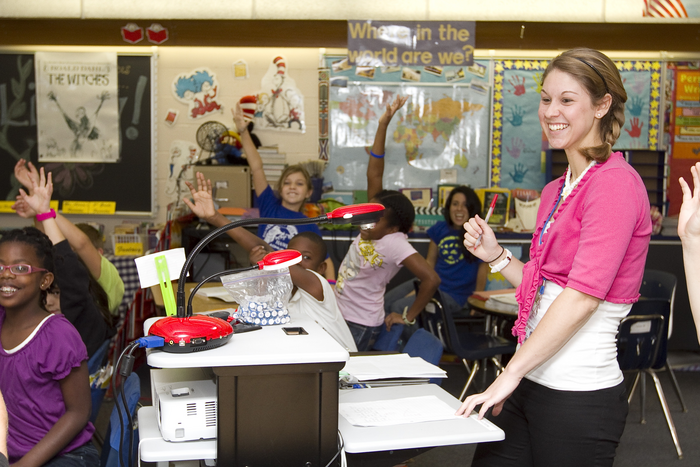Most teachers focus on academic considerations when assigning seats. A new study by Florida Atlantic University psychology researchers is the first to show that these classroom seat assignments also have important implications for children’s friendships.

Credit: Florida Atlantic University
Most teachers focus on academic considerations when assigning seats. A new study by Florida Atlantic University psychology researchers is the first to show that these classroom seat assignments also have important implications for children’s friendships.
Results of the study, published in the journal Frontiers in Psychology, revealed that friendships reflect classroom seat assignments. Students sitting next to or nearby one another were more likely to be friends with one another than students seated elsewhere in the classroom. Moreover, longitudinal analyses showed that classroom seating proximity was associated with the formation of new friendships. After seat assignments changed, students were more likely to become friends with newly near-seated classmates than with those who remained or became seated farther away.
“The students in our study spent most of every day with the same 15 or so classmates. By the middle of the school year, there were no unfamiliar peers,” said Brett Laursen, Ph.D., senior author and a professor of psychology in FAU’s Charles E. Schmidt College of Science. “Yet when seat assignments changed, new seatmates were apt to become new friends, consistent with claims that exposure alone is not a sufficient condition for friendship. Apparently, proximity transcends familiarity by providing new opportunities for the kind of exchanges that form the basis of a friendship.”
Participants in the study included 235 students (129 boys, 106 girls) in grades 3 – 5 (ages 8–11) who nominated friends at two time points (13 -14 weeks apart). Children attended a public primary school in South Florida that reflected public school students in the state in terms of ethnicity and family income.
For the study, teacher seating charts were used to calculate three forms of proximity for each pair of students in a classroom. Neighbor proximity described classmates seated directly beside one another in a row or at a table, and those seated directly across from one another at a table. Group proximity included classmates identified as neighbors as well as those who were near neighbors; the latter were either one seat away in the same row or diagonal to one another at the same table. Findings for group proximity were the most robust, suggesting that children are willing (and able) to overlook their nearest neighbors in favor of those seated close enough for sustained communication.
“Of course, students were not glued to their seats; interactions with far-seated peers undoubtedly occurred during lunch, recess and (in some classes) free time activities,” said Laursen. “The fact that new friends tended to emerge among the newly near-seated – despite opportunities for engagement with other classmates – underscores the power of proximity in friendship formation.”
Classroom proximity assumes outsized importance during the elementary school years because children this age have few other sustained opportunities to meet (and engage with) friends and because companionship is central to the definition of friendship. It has long been known that most children report that most of their friends are in the same classroom. We now know that they are probably seated nearby.
Elementary school children spend most of their days in assigned seats, in the company of classmates. In most elementary school classrooms, teachers decide who sits next to whom and, by extension, who interacts with whom.
“Taken together, our findings highlight the enormous influence that teachers wield over the interpersonal lives of children. With great power comes great responsibility,” said Laursen. “We urge teachers to exercise their power judiciously. Unintended social consequences have been known to arise when adults meddle in the social lives of children.”
Study co-author is Sharon Faur, a developmental psychology doctoral student in FAU’s Charles E. Schmidt College of Science.
The study was supported by the United States National Institute of Child Health and Human Development, National Institutes of Health (HD096457).
– FAU –
About Florida Atlantic University:
Florida Atlantic University, established in 1961, officially opened its doors in 1964 as the fifth public university in Florida. Today, the University serves more than 30,000 undergraduate and graduate students across six campuses located along the southeast Florida coast. In recent years, the University has doubled its research expenditures and outpaced its peers in student achievement rates. Through the coexistence of access and excellence, FAU embodies an innovative model where traditional achievement gaps vanish. FAU is designated a Hispanic-serving institution, ranked as a top public university by U.S. News & World Report and a High Research Activity institution by the Carnegie Foundation for the Advancement of Teaching. For more information, visit www.fau.edu.
Journal
Frontiers in Psychology
DOI
10.3389/fpsyg.2022.796002
Method of Research
Observational study
Subject of Research
People
Article Title
Classroom Seat Proximity Predicts Friendship Formation
Article Publication Date
3-May-2022




